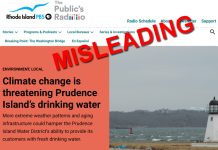Energy is the lifeblood of the modern world. Yet, so few people understand the process behind turning on the lights, fueling a car, and getting goods delivered across the globe. That’s why The Heartland Institute’s Linnea Lueken created our new series “Energy Explained.”
Oil and gas take the center stage for the inaugural episode. Learn about their history, price, and how the modern world would cease to function without oil and gas.
History of oil and gas:
– https://www.apga.org/apgamainsite/aboutus/facts/history-of-natural-gas
– https://ektinteractive.com/history-of-oil/
– https://aoghs.org/offshore-history/offshore-oil-history/















A breath of fresh air. Thank you for the clarity and honesty of your remarks.
Brilliant. Do more. Thank you.
Nice Job- -look forward to more segments!
Dear Ms. Lueken,
Thank you for your commentary. As an advocate for alternate energy we need to establish a rational dissertation on oil and natural gas. I am an advocate of rational discernment not catastrophizing. The XL pipeline is a rational choice and far more environmentally sound however this did not appeal. On the other hand we cannot drill with abandon either. nor can we do without oil as you have stated. What concerns me most is the issue of water used in fracking, especially in horizontal drilling. Also the drilling in areas in the west where they are near or under our large aquafers. Can please provide me with some statistics on the use of water per unit volume of oil and gas produced. Can you provide me with a list of the chemicals used in hydrofracking and its corresponding drilling processes? Would you provide me with examples of where the produced water is disposed of. Currently these ponds that hold the produced water are a significant cause of bird deaths which drink from these ponds. This may be one reason the federal government wants to classify these waters as toxic.
PS I am disappointed that you didn’t mention the oil that was discovered in 1627 near today’s Cuba NY. 🙂